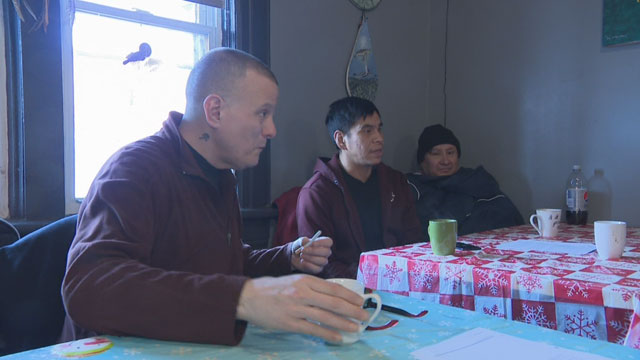
City councillors voted unanimously on Wednesday to pass a motion declaring a homelessness and affordable housing emergency in the nation’s capital.
The motion also demands “a special emphasis on Indigenous homelessness,” given the overrepresentation of First Nations, Inuit, and Métis among the homeless population in Ottawa.
Coun. Catherine McKenney previously tabled the motion.
“Our community needs a response to homelessness that works not only for those experiencing homelessness, but for all the people in Ottawa,” said McKenney last week.
“Unless we work together across all levels of government, it will continue to get worse.”
Mathieu Fleury, councillor for Rideau-Vanier Ward, told APTN News that the “historic” vote is going to have “positive” outcomes for Indigenous peoples.
The city says Indigenous peoples make up 25 per cent of the homeless population, but agencies providing Indigenous-specific social services say it’s probably somewhere around 30 but could be as high as 40 per cent.
Indigenous peoples constitute only 2.5 per cent of the general population in Ottawa.
Much of this overrepresentation is concentrated in Fleury’s ward. He says he’s working with Tungasuvvingat Inuit housing support centre to house 100 of its Inuk clients.
“We believe that we’re doing the right thing,” he said. “What people are seeing in terms of the pressures on the street or in shelters or in motels are only the tip of the iceberg.”
Fleury said the goal is to get to a point where thousands of affordable and social housing units are being built every year.
“The city is too slow in moving. This conversation has begun two to three years ago, and still we don’t have land, we don’t have the scope of the project. I remain frustrated,” he said.
“I hope the unanimous vote today can be a trigger for those types of investments as well.”
Canada’s federal minister of Middle-Class Prosperity, Mona Fortier said her government recognizes more work needs to be done in partnership with Indigenous social service providers.
“We are putting some measures into place such as the co-development fund for Indigenous housing,” she said. “We have invested over $500 million not only in Ottawa but across Canada.”
Fortier is also the MP for Ottawa-Vanier.
“We have done a lot of work with the national housing strategy, but we all know that it won’t take just a year to fix,” she said. “It’ll take at least ten years, and we are working together not only with the city, the province, but even partners like Gignul.”
The Gignul Non-Profit Housing Corporation is based in Ottawa and helps First Nations clients find affordable housing.
Gignul executive director Marc Maracle told APTN last week that roughly 60 per cent of their 201 units are in Fortier’s Vanier riding, where most vulnerable Indigenous people live.
“That is absolutely where a majority of Indigenous people reside in this city that are in lower socioeconomic conditions. And they’re there simply because that is where they can afford to live and there’s units available. Sometimes it’s not always the best choice.”
Read More:
Indigenous agencies say they can’t be an ‘afterthought’ when dealing with homelessness in Ottawa
The NDP’s housing critic Jenny Kwan criticized the Liberal government for not having a national urban Indigenous housing action plan.
“The Indigenous community is left out – literally – in the cold,” said Kwan, who added she will be calling for the government to develop just such a strategy.
“We need a targeted effort with respect to Indigenous housing. It needs to be Indigenous run. It needs to be Indigenous led as well.”
“In an era of reconciliation – and we heard it over and over again that this is the most important relationship to them – how is it possible, then, that the Indigenous community is forgotten on the issue of homelessness?”
Kwan also criticized the government for letting things get to emergency levels across the country, not just Ottawa.
Fortier wouldn’t say whether she’s embarrassed that the national centre of political power is unable to house Ottawa’s most vulnerable residents.
“It’s really important to continue to work together,” she said.
Fleury added that, although homelessness disproportionately impacts Indigenous peoples, it’s a major human rights issue.
“This is not about shelter living. This is about providing a key to a unit where people have their own bedroom, their kitchen, their own washroom,” he said.
“This is not a shelter solution. This is a need for housing emergency crisis.”
Ottawa’s shelters have been over capacity for some time. The city contracts with hotels and motels to house hundreds of families, who can spend years living in single rooms without kitchens.
Nevertheless, Fleury said the federal government needs time to process this and understand how bad things really are.
But an emergency requires immediate action – and Kwan said that’s what has to happen.
“No more pretty words. We want action.”









